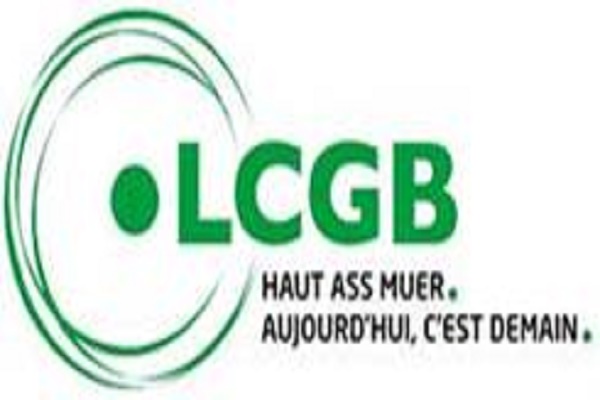
Luxembourg trade union LCGB has criticised a bill voted on today in the parliament increasing sick leave from 52 to 78 weeks.
On 25 July 2018, the Luxembourg Chamber of Deputies voted on Bill 7311, which increases the limit of the period of sickness from 52 to 78 weeks, introduces a gradual resumption of work for therapeutic reasons and amends the reform of long-term care insurance. However, the LCGB has stated its concern that this bill is a missed opportunity to really improve the legal protection of sick employees and the interests of dependents.
While in the middle of the pre-election period, the Minister of Social Security wants to sell the policyholders important social advances, the trade union has argued that reality is quite different: the provisions relating to the disease are for employers a net financial benefit and for a small step forward for the insured. As for long-term care insurance, the LCGB has highlighted that this was already dealt with on 1 January 2018 and partially rectified at the last minute.
Furthermore, the LCGB has criticised the fact that the observations of the Council of State did not evoke detailed analyses and discussions of the draft law in the Chamber of Deputies before the Parliamentary Commission of Labour, Employment and Social Security hastily adopted, on 19 July 2018, a report that the trade union considers to both ignore the opinion of the Chamber of Employees, quickly skims over other opinions and even contradicts the Council of State's opinion on one point.
Regarding increased sick leave, the LCGB has maintained its claim for a removal of any legal limit of illness for private sector employees and the establishment of a protection system similar to that of the civil service. Meanwhile, concerning the gradual recovery of work to replace therapeutic half-time, the trade union has mainly criticised the fact that each day of gradual recovery will be charged as an entire day in the calculation for the determination of the limit of 78 weeks, regardless of the fraction of time actually worked. Currently, a half-day therapeutic day is counted as a half-day.
The LCGB also pointed out that the financial impact of the bill for the CNS amounts to €34 million for employers, while the extension of the sickness period from 52 to 78 weeks generates a cost of €5 million for the insured. Bill 7311 remains silent, according to the trade union, as to the expenses due to the incapacity certificates entirely dependent on the CNS during the whole gradual recovery. LCGB added that the Council of State made similar criticisms in its opinion of 17 July 2018.
Concerning the amendments to long-term care insurance, the Council of State resumed criticism of the COPAS concerning the exchange of guards at 50% of the maximum annual duration since this constitutes both a loss of flexibility and a formula unmanageable in practice. And yet, the LCGB has argued that the Parliamentary Commission ignores in its report the Council's recommendations.
Consequently, the LCGB can only partially support the amendments tabled and it will remain vigilant as to the concrete implementation of these amendments.








